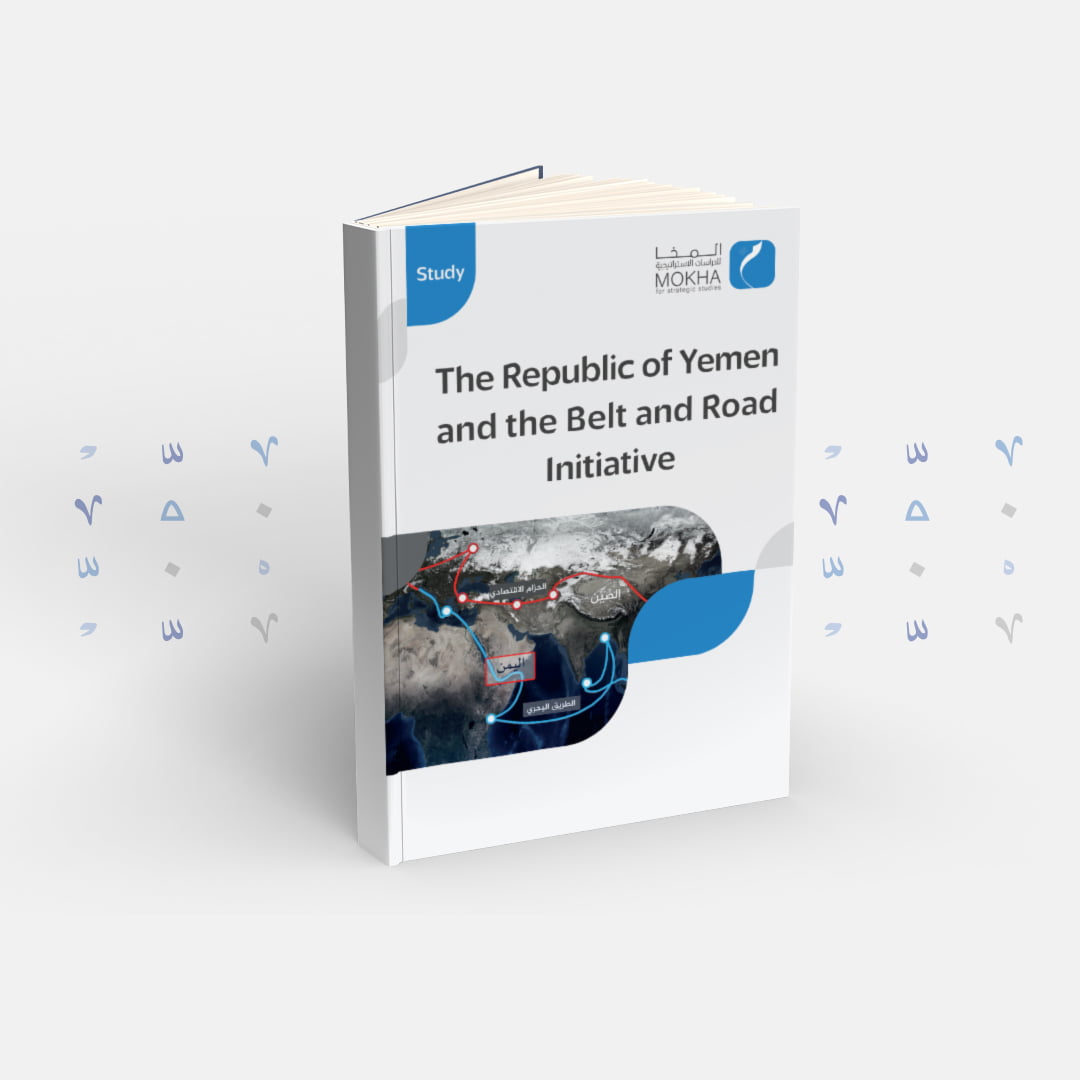The Republic of Yemen and the Belt and Road Initiative

“Yemen and the Belt and Road Initiative…Delayed Joining and the Possibility of Catch-up” by researcher Saleh Hassan Abu Aser, is a study that presents the reality of Yemen within the context of the Chinese economic belt project, known as the Belt and Road Initiative which began in 2013, where more than 130 countries joined, in addition to more than 30 international organizations, except Yemen as it remained the only Arab country that did not join the project, although it is one of the most qualified countries and can benefit from the project.
The study attempted to investigate the qualifications of Yemen to join this global project, the obstacles that stand in the way, the political and economic repercussions on Yemen in the event of joining or not joining, analyzing the dimensions and contexts related to this issue, and assessing the possibility of joining this project.
The most influential geopolitical project in the world, which extends over 12000 km, passing through 3 continents: Asia-Africa-Europe, and passing through more than 65 countries, inhabited by 62% of the world’s population, where Beijing provided more than 30 billion dollars as initial investments in the countries that this road will pass through. Yemen was among the Chinese goals, as the Chinese-Yemeni summit was held just one month before the Chinese president launched the Great China Project.
the researcher provided a historical introduction, in which he discussed Yemen’s location on the Silk Road and global trade between East and West. Then he introduced the idea of the Initiative project, which seeks to revive the old road, its objectives, and its time duration, which extends from 2013 to 2049.
The study emphasized the historical and geographical qualifications of Yemen, as it possesses historical ingredients like a strategic geographical location, and a vital view of the Bab al-Mandab Strait where energy transits to China and Chinese goods to the Western world, and suitable ports. These qualifications give Yemen the ability to maintain a good weight on the Belt and Road Initiative scale, the uniqueness in terms of its impact on the middle east and western routes of the new Silk Road, where providing alternatives matching these qualifications is not possible.
The study touched on former President, Abd Rabbo Mansour Hadi’s visit to Beijing in mid-November 2013, as discussions took place between the two parties, where China pledged to finance development projects in Yemen for the next 20 years, in addition to providing an urgent financial aid package.
Besides mentioning the reasons for the delay of Yemen joining the initiative, the study was presented for three reasons: the continuation of the existing conflict, the dominance of regional intervention in the Yemeni situation, and the weak performance of the Yemeni government towards the initiative. It also presented the negative effects of Yemen’s late accession to the Belt and Road Initiative, the positive benefits expected from joining, and the potential risks, while discussing the possibility of joining despite the delay.
The study included several appendices, namely: an interview with the Chinese Ambassador to the Republic of Yemen / Kang Yong; And an interview with Ambassador / Ahmed Muthanna Qasim, Deputy Ambassador of the Republic of Yemen in Beijing, during the period (2013 -2021).

